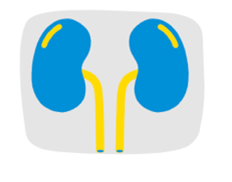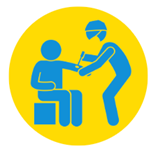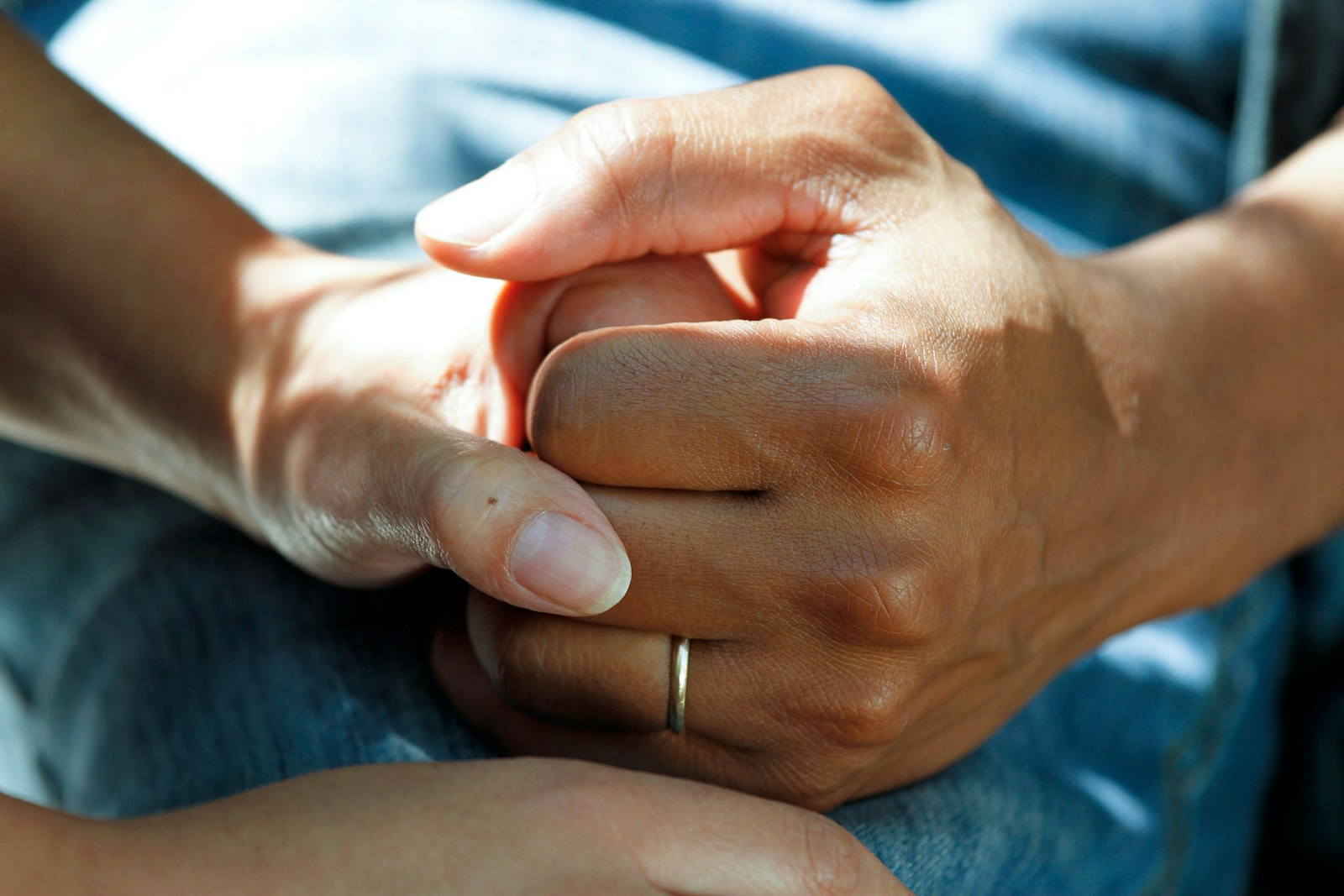
In Partnership with CSL Behring

A kidney transplant is a life-changing gift that can drastically alter the quality of life. However, there are many medical, physical, and emotional changes to be expected while undergoing a transplant. There are many different types of transplants and the associated transplant surgeries vary in length of wait and amount of preparation time given.
Kidney transplants can be divided into categories by the donor you receive your kidney from (either a deceased donor or a living donor) or by the timing in which you receive one (preemptive transplantation or non-preemptive transplantation).
- A preemptive transplantation occurs before dialysis is initiated and is generally considered the best option. This is because it avoids the need for dialysis and may result in better patient and kidney survival in the long-term.
- Non-preemptive transplants are much more common and, oftentimes, you may only have a couple of hours to prepare for the transplant itself once a match is found[1].
Scheduled transplants

In the days leading up to the surgery, there are guidelines to ensure that you are in good health and capable of handling the transplant surgery itself. The guidelines differ between transplant centers, so consult your transplant team for specific instructions. Some of the instructions may include:
- You may be asked to avoid blood thinners (most commonly aspirin) for a certain period of time before surgery.
- There may be diet restrictions in the time period before surgery.
- Your transplant team may ask you to stay hydrated in the weeks leading up to your transplant and to monitor yourself for any changes in your condition.
Unscheduled transplants

Many transplants start with a phone call from the transplant team letting you know about a possible organ match. There is only a window of a couple of hours to keep the organ from deteriorating. Kidneys can survive outside the body for around 36-48 hours[2], which gives hospitals a short amount of time to alert the patient, and for surgeons and the transplant team to prepare for surgery.
Transplant surgery
The days leading up to the surgery can also be an emotional time. A lot of information will be provided to you and your care partner about life after transplant, your medication regimen, and the possibility of rejection. It is crucial to rely on your care partners and social support for your emotional and mental well-being, as well as to ensure you have all the necessary information.
The transplant surgery itself is typically a four-hour operation. Generally, a patient’s existing kidney will not be taken out unless there’s a medical reason to remove it. The surgeon will make an incision in the lower part of the stomach to place the donor kidney for best access to connect the new kidney to important blood vessels and the bladder.
While each hospital may have different standard operating procedures, your transplant surgery could include the following items:
- Upon arrival at the hospital, there may be a pre-operative checkup.
- The donor surgeon and anesthesiologist will then discuss the surgery and its risks with you and ask you to sign consent forms.
- Once pre-operative tasks are complete, you would be taken to the operating room and the anesthesiologist administers anesthesia. A tube may be placed down your throat to help you breathe during the surgery, which may result in a sore throat for up to a week after surgery.
- Another tube may be passed into your bladder to help you urinate during and after the surgery.
- Finally, an intravenous line will be placed in your arm to give you medications during and after your surgery.
After surgery, you will be taken to a recovery room and monitored as you wake up from anesthesia. You can expect soreness and pain around the incision site, but transplant recipients are often out of bed within one to two days. Your new kidney should begin producing urine soon after that.
Complications beyond rejection

The most feared complication of a kidney transplant is kidney rejection, which happens when your body recognizes the kidney as foreign and your immune system launches an attack against the donor kidney. But there are other early and late complications of kidney transplant, as well as the transplantation surgery itself.
Early complications occur hours to days after surgery and are carefully monitored and often preventable. These may include[3]:
- Increased risk of abdominal abscesses
- Bleeding or blood in urine (a common complication immediately after surgery)
- Abdominal hernias over the site of incision
- Infection in the urinary tract
- Blood clots
- Pneumonia
- Constipation due to narcotic pain medication use
Your transplant team may show you deep breathing exercises to prevent pneumonia and ask you to get out of bed several times a day to prevent blood clots from forming.

Late complications of your kidney transplant may involve immunosuppressive medications. The medications you take after your kidney transplant are meant to reduce your immune system’s ability to attack the donor kidney, but they also may leave you less able to fight off infectious organisms. It is important to continue with your post-operative prescribed medications and instructions to potentially reduce the risk of kidney rejection. Your transplant team will go over any potential complications, which may include[4]:
- Narrowing of vessels that obstruct flow of urine from the kidney to the bladder
- Infection of the kidneys after surgery
- Increased risk of heart disease such as heart failure, high blood pressure or high cholesterol[5]
- Immunosuppressant medication side effects such as:
- Increased risk of skin cancer or lymphoma, possibly linked to the use of immunosuppressant medications
- Increased risk for diabetes
- Opportunistic infections, or common infections that your suppressed immune system has difficulty fighting off, such as herpes simplex or cytomegalovirus
- Changes to appearance such as weight gain, extra hair growth of hair loss, or acne
- Abdominal pain or diarrhea
- Mood swings or cognitive changes
These complications will be monitored through regularly scheduled visits with your care team. Particularly with the immunosuppressant medication related side effects, your physician will try to tailor the right dose for you, which is high enough to prevent rejection but with the least amount of side effects. Consult your care team if you have any side effects, as your side effects may improve with the proper dosage.
The information, including but not limited to, text, graphics, images and other material contained herein are for informational purposes only. No material is intended to be a substitute for professional medical advice, diagnosis or treatment. Always seek the advice of your physician or other qualified health care provider with any questions you may have regarding a medical condition or treatment and before undertaking a new health care regimen, and never disregard professional medical advice or delay in seeking it because of something you have read here.
[1] Parra, C. O., Van de Bruaene, C., Weynants, L., Nagler, E. V., McAleenan, A., Elbers, R. G., … & Goetghebeur, E. (2018). Pre‐emptive versus non pre‐emptive kidney transplantation for end‐stage kidney disease. The Cochrane Database of Systematic Reviews, 2018(12).
[2] Suthanthiran, M., & Strom, T. B. (1994). Renal transplantation. New England Journal of Medicine, 331(6), 365-376.
[3] Buttigieg, J., Agius-Anastasi, A., Sharma, A., & Halawa, A. (2018). Early urological complications after kidney transplantation: An overview. World Journal of Transplantation, 8(5), 142.
[4] Silkensen, J. R. (2000). Long-term complications in renal transplantation. Journal of the American Society of Nephrology, 11(3), 582-588.
[5] Loncar, D., & Hodzic, S. (2018). Cardiovascular Diseases in Patients with Renal Transplantation. In Organ Donation and Transplantation-Current Status and Future Challenges. IntechOpen.


